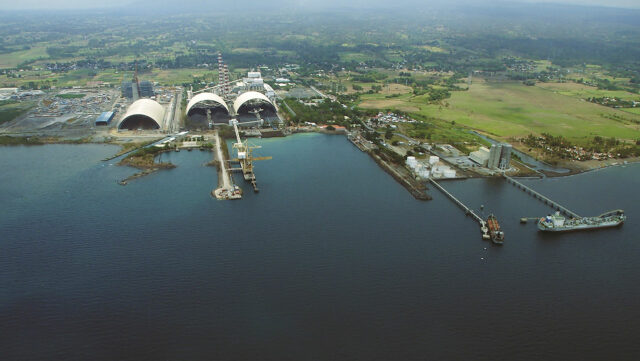Don’t let Trump fool you. US elections are fair and secure
MARICOPA County Supervisor Bill Gates appeared before the House Committee on Oversight and Reform in 2021 and told lawmakers that “as a Republican who believes in democracy, I dreamed of one day going to a nation that was trying to build a democracy and help them out. I never could have imagined that I would be doing that work here in the United States of America.”
Gates testified during a congressional review of Republicans’ unfounded claims of 2020 election fraud in Arizona and underscored the damage Donald Trump and fellow Republicans had done to public trust in the system by refusing to accept Joe Biden’s victory.
“This is without a doubt the biggest threat to our democracy in my lifetime,” Gates said.
It was a brutal assessment of a nation that once had a global reputation as a beacon of election integrity. Sadly, just days out from Election Day 2024, signs are mounting that, despite evidence the vote will be secure and reliable, the distrust Trump and his allies have sown could not only lead to a repeat of the disruption of 2020, but even worse.
Fires have been set in ballot drop boxes in Oregon and Washington, destroying hundreds of ballots. In Arizona, one of the centers of election denialism in 2020, a man arrested in connection with shooting at a Democratic Party campaign office in Tempe on three occasions faces felony charges of terrorism. The Federal Bureau of Investigation found more than 120 firearms and more than 250,000 rounds of ammunition in the man’s home, and law enforcement suspects he may have been planning a mass casualty event. An 18-year-old was arrested on Wednesday after threatening voters with a machete at an early-voting station near Jacksonville, Florida. And on Thursday, Georgia Secretary of State Brad Raffensperger had to issue a statement denouncing a fake video purporting to show Haitian immigrants with Georgia IDs, claiming they had voted. US intelligence officials said on Friday that the video was the work of “Russian influence actors.”
These disruptions have become the new normal for American elections since a mob of Trump supporters stormed the US Capitol on Jan. 6, 2021. Election deniers fed a steady diet of lies by Trump, right-wing media, and ethically challenged lawyers and politicians are convinced the system is corrupt.
Since 2020, the resources devoted to fending off threats to voters, poll workers, and election officials across the country have grown drastically. The Justice department created its Elections Threat Task Force in response to the year’s post-election events. According to the Brennan Center for Justice, 92% of local election officials have increased security to protect election workers and infrastructure.
In Maricopa County, Sheriff Russ Skinner plans to position snipers on the roof of the vote tabulation center and metal detectors and security guards at every entrance. Drones will be hovering overhead, and Skinner has announced “a blackout” period, meaning no time off for his staff next week, “so there is enough to respond as necessary.”
But despite attempts by a few unhinged individuals to sabotage early voting, despite Trump’s unsupported rants about voter fraud, and despite a flurry of last-minute lawsuits filed by Republicans aimed at disrupting the process, early voting has gone remarkably smoothly for the 66 million people who had cast ballots by Thursday.
And guess what? It will likely continue because America’s election system is modern, secure, and difficult to breach. Protections are baked in the decentralized system operated by professionals from both parties, fueled by dedicated volunteers, and secured by redundancies. It’s incredibly complicated to disrupt, even for a bad actor with Trump’s resources.
“I am 100% confident that the person who takes the oath of office on January 20th will have won a fair and verified election,” David Becker, executive director of the nonpartisan, nonprofit Center for Election Innovation and Research, said in his weekly podcast. And if the winner is Trump, “Democrats will have a choice: accept the loss and support democracy, or cry foul and become what they have reviled.”
But it’s not the integrity of the election that Becker, Gates, and other election experts worry about. It’s what happens after Election Day.
Public confidence in elections is dangerously low. A Pew Research Center poll last month found that only 73% of voters were confident the elections would be run well. However, there is a substantial partisan gap: 90% of Kamala Harris supporters express such confidence, while only 57% of Trump supporters agree.
That’s a problem because if nearly a third of the country doesn’t believe in the accuracy and reliability of elections, “that impacts the peaceful transfer of power” for whoever wins, Ben Ginsberg, a Republican election law expert, said at a September Knight Forum on election law.
Meanwhile, Trump and his allies continue to push a false narrative that his victory is inevitable — even though polls show the race is a dead heat. This ploy is aimed at casting doubt on the outcome in the event he loses, and they’re playing a dangerous game by creating suspicion in the minds of his supporters.
Trump, vice-presidential candidate JD Vance, and Trump’s new best friend Elon Musk have cast doubt on the security of mail-in voting and ballot drop boxes, falsely claimed non-citizens are voting, and continue to claim he won the 2020 election. Trump has also refused to commit to accepting the results of this election unless, of course, things go his way.
It’s the 2020 playbook, except this time, there will be seven-foot-high wrought iron fences, concrete barriers, and armed guards to count votes in places like Maricopa County. And, because of the Electoral Count Reform Act of 2022, there are also new safeguards to protect the integrity of the votes.
Still, Trump could create post-election chaos, and that’s a problem for the peaceful transfer of power — even for him. He’s created a tinder box so vulnerable that even he may be unable to douse the flames. We need to defeat Trump so we can restore the system’s integrity. When this election is over, let’s hope we’ll be talking about the heroic efforts of the officials and volunteers who delivered secure and reliable results in the face of unprecedented threats, not another round of MAGA-inspired violence.
BLOOMBERG OPINION






















